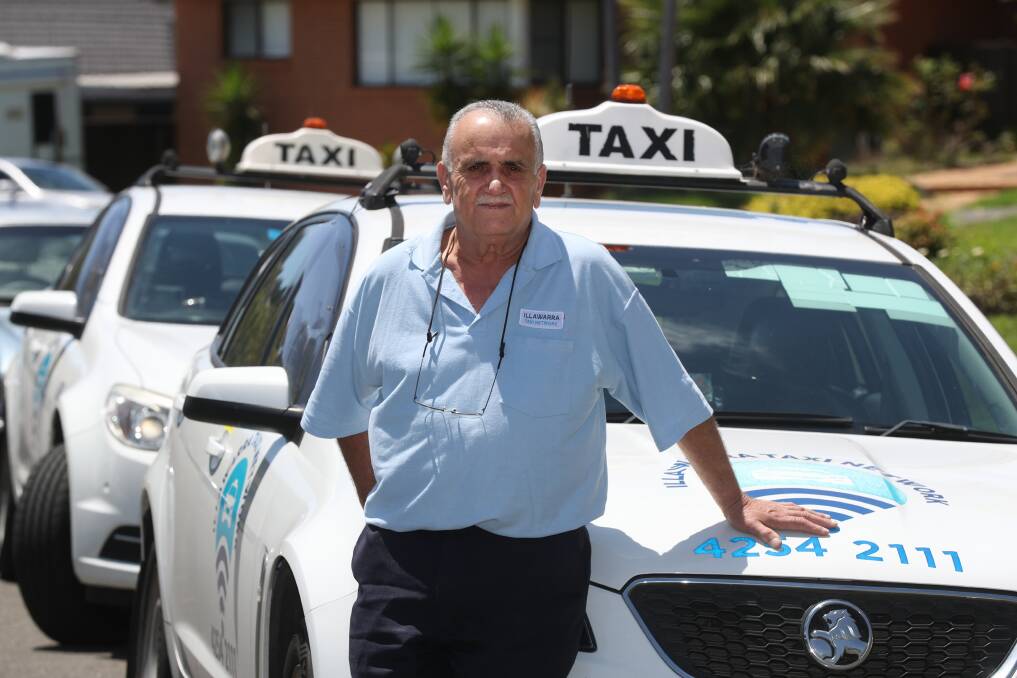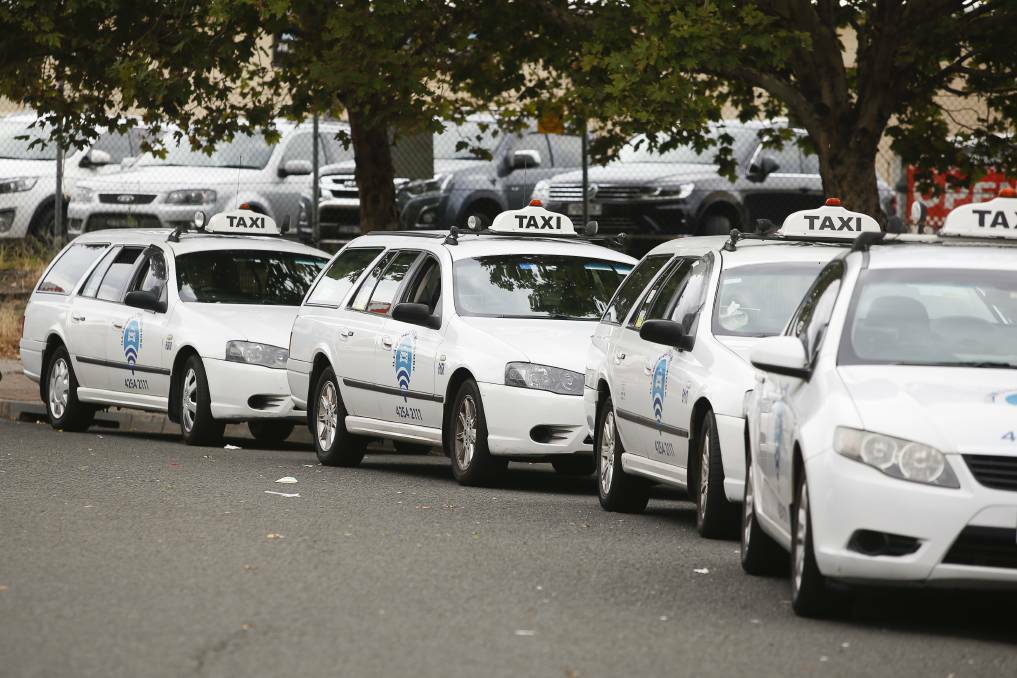
When Mahamad Choubassi bought his taxi licence for $250,000 he thought he was making a good investment.
Subscribe now for unlimited access.
or signup to continue reading
Now 64 and ready to retire, the licence has become practically worthless.
"I'm going to be a burden on the federal government because of the pension," said Mr Choubassi of Illawarra Taxi Network. "This [taxi licence] was supposed to be my superannuation but now it's gone. That's the fault of the state government."
Mr Choubassi is pointing the finger at the state government because of the introduction of rideshare apps such as Uber and the NSW Government's current proposed reforms to the industry.
The NSW government says that the reforms, expected to be introduced to parliament this year, will modernise the industry and allow taxi operators to compete with rideshare platforms.
The taxi industry says that the reforms will lead to consumers getting charged higher fares and drivers concentrating on areas with the highest likelihood of picking up a fare, leaving regional communities without transport options.
To counter this, the NSW Taxi Council is calling on NSW parliamentarians to sign its pledge and the first to do so was Kiama MP Gareth Ward.
"This is entirely a problem of the Government's own making," said Mr Ward. "Well-meaning businesspeople bought into the taxi scheme only to have the rules changed from under them which has devalued assets and destroyed family businesses. Previous actions of the NSW Government put many regional taxi services at risk."
The pledge from the NSW Taxi Council calls for fair and proper compensation for taxi licence owners, the continuation of the passenger service levy to pay for the compensation and a viable, affordable, regulated and reliable taxi industry, available to all in NSW.
One of the sticking points of the reforms is the removal of restrictions on areas of service. Under the previous model, a condition of taxi licences issued by the state government set a geographical area where the taxi could operate, this is proposed to be scrapped.
Martin Rogers, CEO of the NSW Taxi Council said this would mean fewer services available for those in the Illawarra.
"In smaller towns, like Kiama, if a taxi driver can drive 20 minutes down the road and earn more, then they'll leave Kiama and go to the bigger towns."
Mr Choubassi predicted that this would have an impact even in larger cities like Wollongong.
"Everybody is going to go and work in Sydney. What about the public here?"
The other point of contention is the deregulation of fees. While rideshare apps can charge surge pricing during periods of high demand, taxi fares in NSW are set by the Independent Pricing and Regulatory Tribunal.
"We believe that passengers should be protected," said Mr Rogers. "The whole industry should have a maximum fare structure in place."
Mr Choubassi said deregulating taxi fares would hit the most vulnerable.
"Especially older people, they do rely on us, but if you are at a taxi rank and there's no car but one, the driver could charge $100 or $200 and you've got no choice."
A Transport for NSW spokesperson said that $145 million has already been paid to the taxi industry to assist with the introduction of rideshare and that the proposed reforms would address the imbalance between taxis and ride share.
"Taxi service providers will have more choice and flexibility about how they respond to market changes - either by putting on more taxis, expanding their fleets to include hire vehicles, specialising in rank and hail services only, or providing other niche services."

Wollongong MP Paul Scully criticised the way the NSW government has handled the introduction of rideshare services.
"Taxi operators are small businesses who have had their businesses fundamentally disrupted following government policy decisions.
"There have been multiple reports to the NSW Government to support the claims of operators over the last five years.
"The new Transport Minister should re-examine the NSW Government's position on this issue in light of the multiple reports to the government and evidence from the operation of the market."
All this might be cold comfort for anyone waiting for a cab or rideshare vehicle. Since arriving in the region in 2017, Uber has become widely used in the Illawarra, but not without concerns around safety. An Uber spokesperson said the company was committed to providing its services to the Illawarra.
"Safety is a top priority and we take our regulatory responsibilities very seriously," the spokesperson said. "We have led the way for the industry with a number of long-standing policies, processes and cutting-edge features built into our technology to support the safety of everyone who uses our app. This includes GPS tracking, something that had not always been possible in the point to point industry."
For Mr Choubassi, the viability of providing a taxi service in the Illawarra is in doubt, with drivers hard to come by and cars on the road for fewer hours.
"We used to have at least 110 cabs on the road. Now you'd be lucky if you had 60 cabs on the road, and that's on weekends, Friday and Saturday."
Mr Rogers, of the NSW Taxi Council, is optimistic that taxis will continue as legacy operators embrace technology, but argued that these reforms were not the right way to preserve the industry.
"We still need to get all of those parts level in terms of making sure that we can have a competitive and viable model into the future."
The Illawarra Mercury newsroom is funded by our readers. You can subscribe to support our journalism here.
Sign up for breaking news emails below ...


